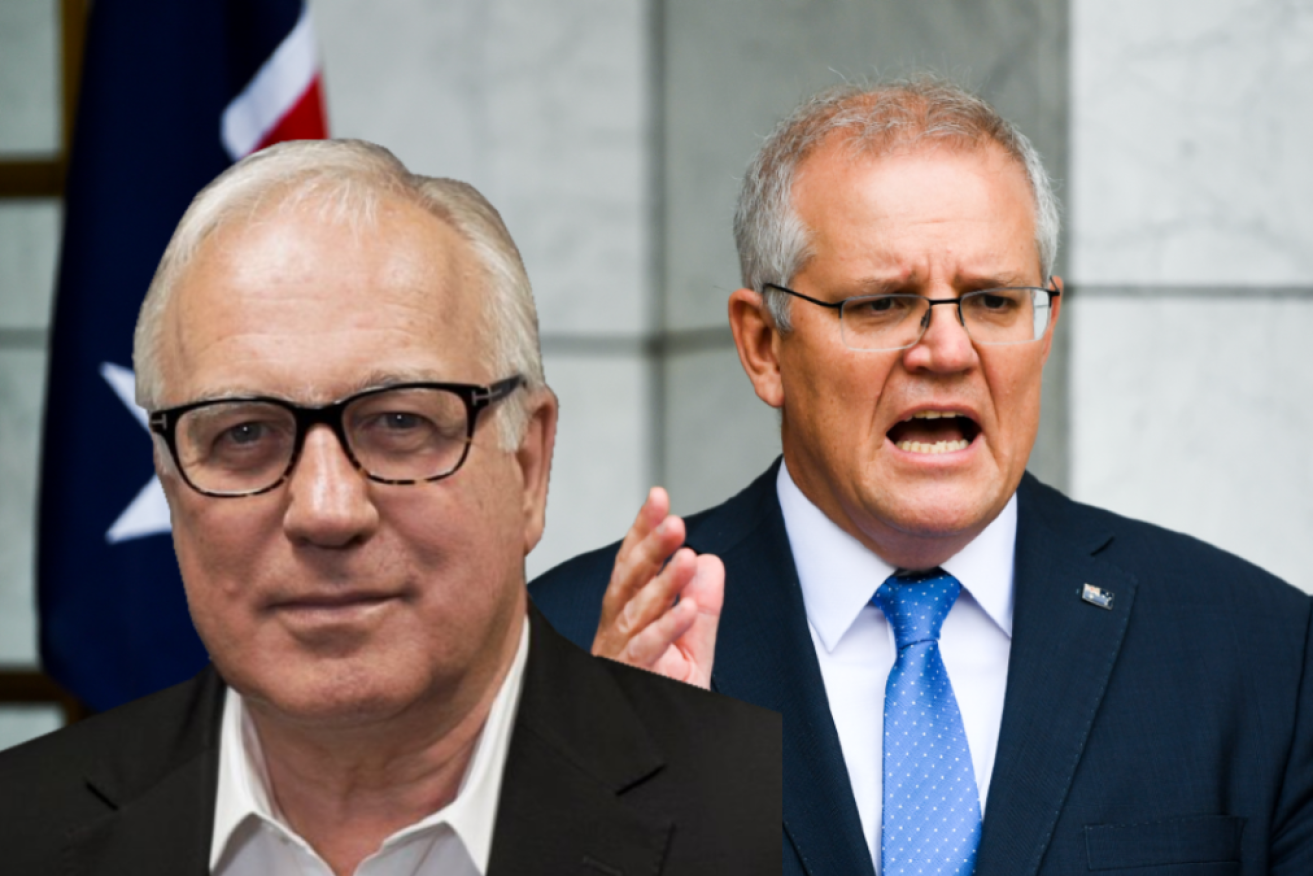Alan Kohler: The Delta strain is a punch in the face


Scott Morrison's four-stage exit plan was little more than a vaccination wish-list, writes Alan Kohler. Photo: TND/AAP
The halving of the international arrivals cap was the only consequential decision from last week’s national cabinet meeting.
And while that was primarily a medical decision to deal with the more infectious Delta variant and the lack of proper quarantine, the impact will also be economic.
Last week’s other announcement – the four-stage exit plan from Scott Morrison – was just a vaccination wish list with no timetable or vaccination target.
We all hope to whizz through the four phases of the plan, but given the complete shambles of the vaccination effort up to now and, above all, the mutating virus, we’re not counting on it.
As Mike Tyson said: “Everybody has a plan until they get punched in the face”. The Delta strain is that punch.
Meanwhile, the timetable for the reduction in the arrivals cap – from the current 6370 a week to 3185 – is floating, and it floated within minutes of being announced.
The official statement about what national cabinet agreed, issued by the Prime Minister, Scott Morrison, said the cap would start at 12.01am on July 14 and remain in place until August 31, after which it would be subject to review “on a regular basis” until the end of 2021.
In the subsequent press conference, Mr Morrison was asked whether the lower cap would actually be in place until the start of next year, and he answered: “That’s what this agreement says today”. It does?
He went on: “… as the New South Wales Premier (said) today … scaling this down to that level and then scaling it up again, that would have some logistical challenges.”
Right, so a maximum of 70,070 people will be allowed into Australia for the rest of this year and we’ll see what happens after that.
Stranded Aussies represent half of that number of permitted arrivals this year, so if they all come back, that leaves space for 35,000 immigrants, students and tourists, a reduction of about 95 per cent on pre-pandemic arrivals.

Last week, Scott Morrison announced a four-stage transition plan that lacked vaccination targets. Photo: AAP
Business gripes with exit plan
On the same day as the new cap was announced, the ABS reported that there were 362,500 job vacancies in Australia at the end of May, 23.4 per cent more than in February last year, before the pandemic began.
The labour market is tight as a drum, and businesses are screaming about skill shortages.
On Friday, their lobby groups lined up to express their disappointment in the new cap on arrivals.
So while lockdowns are tough for a lot of businesses, the economy overall is doing fine and with the number of new arrivals cut by half, economists will be reworking their models for predicting wages, inflation and interest rates.
At the moment, the RBA is saying the first rate hike will be in 2024, but the futures market is predicting it will be November 2022.
That’s basically because economists think the tight labour market, exacerbated by zero immigration, will lead to higher wages growth and inflation than the RBA thinks.
It used to be thought that if unemployment went below 5 per cent, inflation would start to take off.
That’s why the RBA raised interest rates in 2004 and 2010 even though inflation wasn’t rising: Because unemployment had got down to 5 per cent and they wanted to head off inflation. But it never arrived.
And when inflation still kept falling when unemployment declined from above 6 per cent in 2015 to 5 per cent again in September 2018, the RBA economists were forced to adjust their thinking.
RBA aims higher
The RBA now says unemployment could be 4 per cent or even less before inflation gets going.
But it still seems to be a kick behind play. That thinking is based on the old days when net migration was at least 200,000 a year swelling the supply of labour and sapping workers’ bargaining power.
Net migration is already zero, and national cabinet has now decreed that it will be even less for at least six months.
Maybe if everything goes according to (four-phase) plan, and a big vaccination effort achieves herd immunity by the end of the year, so international travel can ramp up again, employers can carry on their recently acquired habit of doing anything but pay higher wages to get and keep staff.
And maybe if the plans works, immigration can go back to contributing half of Australia’s economic growth, and small hospitality businesses won’t get repeatedly crunched by lockdowns.
‘Zero Covid’: A thing of the past
The UK has fully vaccinated almost 50 per cent of its population yet it’s suddenly up to more than 20,000 new cases per day.
Even Israel, which has fully vaccinated 60 per cent of the population, is seeing a sharp rise in Delta cases.
The Delta variant has changed the game: Zero Covid looks like a thing of the past.
And last week the Prime Minister began leading Australia on the journey away from Zero Covid, saying national cabinet had agreed on a “new deal”: “A pathway from a pre-vaccination period, which is focused on the suppression of the virus … to one that sees us manage COVID-19 as an infectious disease like any other in our community”.
That is very different to the national cabinet statement from exactly a year ago: “The goal remains suppression of COVID-19 until a point in time a vaccine or effective treatments are available, with the goal of no local community transmission”.
Can it really be treated like any other infectious disease in our community, with fully open borders and enough people vaccinated?
That seems a long way off.
Alan Kohler writes twice a week for The New Daily. He is also editor in chief of Eureka Report and finance presenter on ABC news








